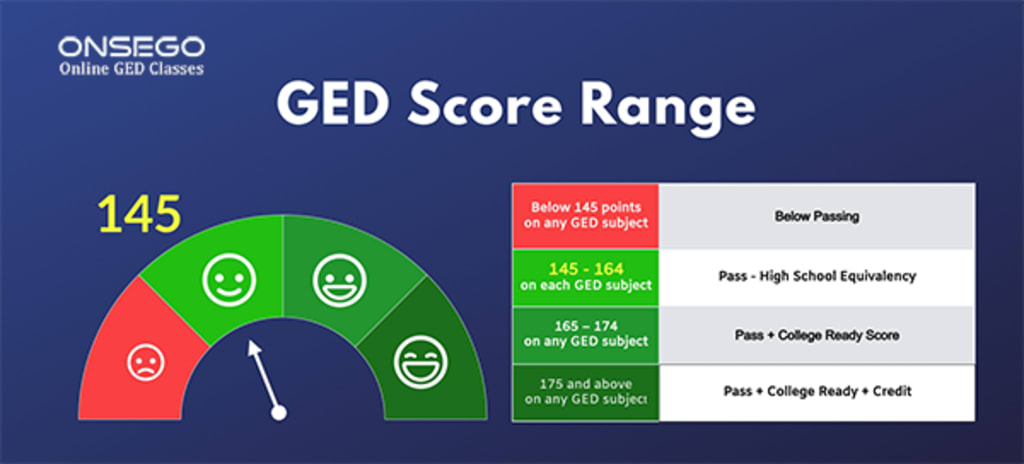The GED - What is it?
What is a GED and why is it important?

GED stands for General Education Development. It refers to either the GED exam, a four-test high school equivalency exam designed for adult learners who did not complete their high school curriculum, or the diploma or certificate that is awarded by states to successful GED test-takers.
The GED test has the same value as a common high school diploma. It is targeted toward individuals looking to improve their professional options or continue their education in university or college.
What Is The GED Certificate?
Adult learners who successfully take the four independent GED sub-exams will receive their High School Equivalency (HSE) diploma or certificate, depending on their state. Earning a GED means that the student has demonstrated to have skills and knowledge at a level comparable to that of graduating high school seniors.
Practically all universities and colleges accept the GED diploma in lieu of a standard high school degree. There are three passing score ranges, and students who manage to attain scores in the GED "College-Ready" range may even have remedial coursework requirements waived in college admissions procedures.
At an increasing number of colleges and universities, they also don't have to submit ACT or SAT scores if they reach these scores on the GED exam. It is advised, however, to always check with universities or colleges if they accept GED "College-Ready" scores in their admissions procedures before applying to the schools.
The Difference Between A GED And A Diploma
Though the GED has legally the same value as a high school diploma regarding pursuing higher education or a rewarding career, there are a few differences.
The path needed to obtain a high school diploma requires four years of education in a private or public secondary school. Earning a GED diploma required merely reaching passing scores on four independent tests that measure proficiency in the academic subject fields of Science, Social Studies, Language Arts, and Mathematics.
So, instead of four years in school to earn a high school degree, successful GED test-takers can obtain an equivalent degree in a relatively short period of time.
High School Students Complete Coursework
To complete their high school education, students need to complete coursework and attend regular classes for four years. They have to complete academic courses that include areas like math, languages, science, history, geography, and many more.
To earn a GED, you don't need to complete any specific coursework. The only requirement is to pass four exams. That's enough to obtain the GED diploma.
Not all employers treat diploma holders and GED graduates the same. The U.S. armed forces, for example, are known for preferring high school graduates over GED recipients.
But there are more stigmas associated with the GED diploma. However, with the introduction of the computer-formatted GED exam some years ago, the bar was raised considerably, the GED passing standards were raised, and more GED holders do well in college than ever before.
Difference In Learning Experience
During four years in high school, students not only get prepared for academic endeavors, but they also can craft their social skills through interesting school activities. This way, they will build relationships that may significantly shape their future lives.
Students who study for a GED, don't benefit from this kind of experience. Their learning experience centers on their academic knowledge and skills only.
Better Jobs and Earnings With A GED
Then again, as stated before, the latest edition of the GED test is a true high school equivalency test, and the passing score is set in a way that at least 40% of all high school seniors couldn't pass the exam on their first try!
It must be said, this is a remarkable achievement of the designers of the GED test, and it doesn't come as a surprise that more and more GED holders continue their education in college.
It is generally known that workers with a high school or GED diploma rre making at least $9500 more annually than people who do not have a secondary education degree.
About the Creator
Gail Ring
I'm of German/Irish descent and very interested in how these nations have influenced life and the people in the U.S. I'm a GED graduate writing also about education and its challenges.
Enjoyed the story? Support the Creator.
Subscribe for free to receive all their stories in your feed. You could also pledge your support or give them a one-off tip, letting them know you appreciate their work.






Comments
There are no comments for this story
Be the first to respond and start the conversation.